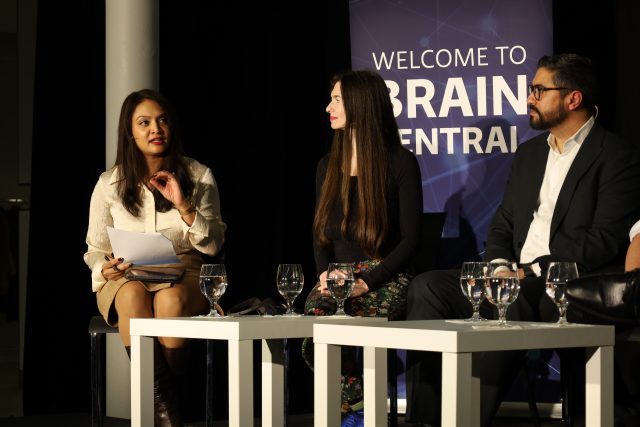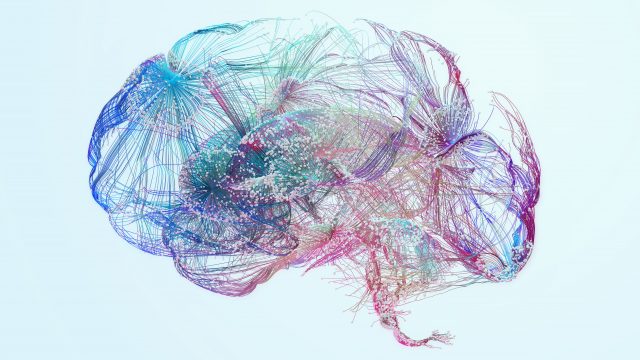Of all the mysteries in neuroscience, memory is among the most heavily researched. There is an important distinction between semantic( basic general knowledge; e.g., Paris is the capital of France) and episodic, or personal, memories (tied to time, place, people; e.g., last Saturday night, my wife and I had a fantastic dinner of mushroom risotto at a restaurant near the market). Because episodic memory is personal, it is the connection to our past, and who we are now. But it is also a core to our vision of the future. And the more salient and emotional the memory, the more it becomes embedded in who we are.
I raise this distinction to reflect on the January 2015 passing of the Founding Chair of the Ontario Brain Institute, Mr. Joseph Rotman. He was a force of nature, and by his very being created salient and emotional memories. His ideas and efforts spurred the creation of OBI and set the course for its success. This issue is dedicated to his memory and explores how his vision and the influence of his formative ideas have been implemented and realized through the OBI system.
Excellence
Start from strength. For OBI this meant identifying the areas of brain research where Ontario scientists and institutions were known to have significant international impact. Today, OBI funds and manages five Integrated Discovery programs which were chosen based on their scientific excellence, potential for commercialization, involvement of patients and their advocates, and level of integration across the province.
Maintain strength. This involves external expert advisors for all aspects of OBI activity. The Board of Directors oversees the quality of research, clinical and economic impact, and assesses value for money. It is advised by a Science Advisory Council and an Industry Advisory Council. Each research programme has a Science Innovation Team, to ensure the quality of the science; a Core Innovation Team, to focus on commercialization of tools and treatments; and a Patient Advisory Committee, to shape research with the goal of ensuring benefit for patients. Every major function, such as our informatics platform Brain-CODE, and our efforts in evaluation, has an international advisory group to ensure quality.
Collaboration and partnership
Amplify excellence. OBI approaches science by creating a system that rewards sharing and incentivizes collaboration. Within our research programs, OBI is consistently seeing the benefits of this approach which is leading to cross-disciplinary and multi-institutional publications, advancement of new treatments for brain disorders, and more meaningful approaches to patient and community engagement. For recent examples have a look at the updates from our research programs.
Support partnerships. Within the OBI system, this implies that the nature of partnership involves wins for everyone. In our Integrated Discovery programs, partnerships between researchers, clinicians, companies, and patient groups have emerged organically as extensions of ongoing engagement early in the process of discovery. To date, the five research programs involve over 200 core researchers and clinicians from 35 academic hospitals and research institutions across Ontario, 45 companies and 18 patient advocacy groups. And the network continues to grow. Outside our research programs, the same mentality towards partnership holds. Learn more about our recent partnership with the Ontario Science Centre to promote brain disorder awareness and highlight the people and organizations contributing to the strength of Ontario’s neuroscience community.
Training
Develop talent and create new career opportunities. As a by-product of Ontario’s neuroscience research strength, there is growing pool of untapped talent. These highly-trained neuroscientists have significant potential to excel not only in traditional academic or industrial research careers, but also in those outside this framework, such as in the development of new companies, or managing science. Given the right opportunity, these young individuals will help grow and sustain a vibrant knowledge-based economy. OBI is helping these individuals bridge the gap between training and a viable career by providing experiential training opportunities.
Read more about our trainees and learn how they are working with the Integrated Discovery programs to assist with the commercialization of research.
A system with impact
With the above principles as a foundation, a system has been created with two important goals: improve brain health and improve Ontario’s economy.
Is the system working?
OBI set out metrics of impact to actively monitor and evaluate our approach. But I would like to point out two examples which demonstrate how the system is creating real-world impacts for both health and the economy.
Health impact
OBI is using research to improve the brain health of an estimated one million people in Ontario living with a brain disorder. Because these disorders are complex, like the brain itself, new approaches are needed to better study their underlying causes and identify novel treatments.
To address this complexity, OBI has developed Brain-CODE to collect data and facilitate data sharing, usage, and linkages. As a research tool, Brain-CODE will enable a combination of hypothesis-driven and data-mining approaches on large sets of standardized data. In 2014, OBI hosted an international workshop in partnership with the Organisation for Economic Co-operation and Development and the Institute for Health Policy, Management and Evaluation to discuss how this big data approach can be used as a model to advance dementia research and care. Read more about OBI’s role in the global discussions on data sharing.
Economic impact
OBI is engaging with industry to create public-private partnerships and support the growth of new Ontario-based companies. How does technology developed for the automotive sector find a new application in neuroscience? And how is this related to another company creating artificial skulls and brains? Read the full story and see how the Ontario neuroscience cluster is growing and attracting new talent and capital.
So what?
Episodic memories are personal; they help define who we are. Our memories of Mr. Rotman and the guidance he provided are deeply embedded in the identity of OBI and remain key to how OBI functions. As we move forward and continue to evolve as an organization, we will remember the vision, and the person, who put us on this path.

